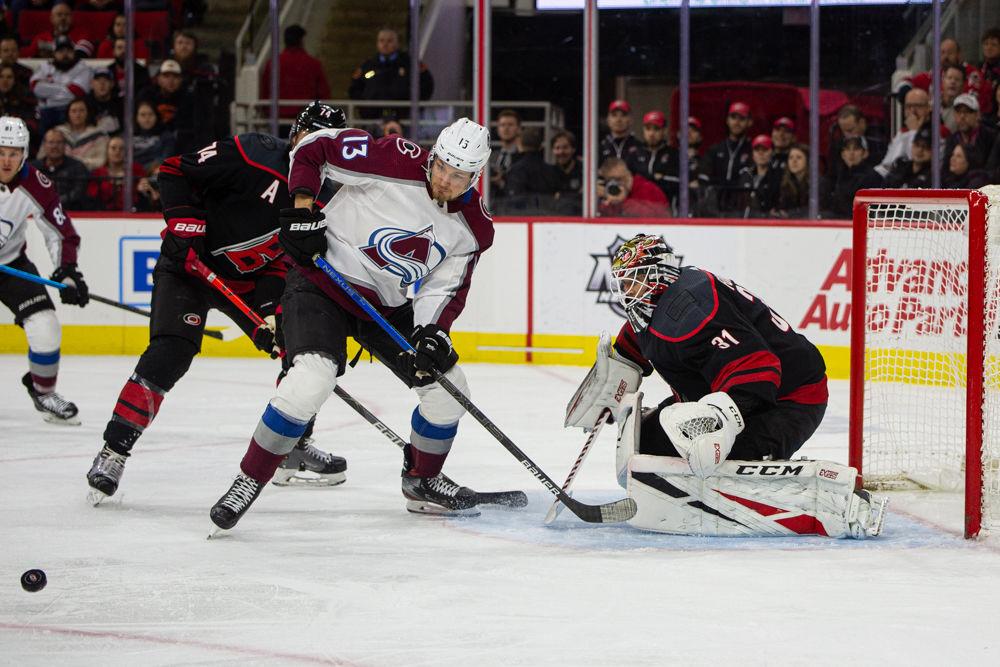I feel lucky enough to say that my life hasn’t been adversely affected by the COVID-19 outbreak. The casualty claimed by the pandemic that I mourned the most was the loss of the 2020 NCAA Men’s Basketball Tournament and all the other sports playing around that time. All the quarantining and mask-wearing would have been more bearable if I could do it while sitting on the couch watching ESPN.
Despite the best efforts of the Korean Baseball Organization in the past few weeks, it just isn’t the same. But as May ends and yet another month of following COVID-19 protocol begins, there seems to finally be a light at the end of the tunnel, with the possibility of a truncated return of sports.
Surprisingly, the National Hockey League has taken a lot of initiative when it comes to how the rest of the season will play out. Depending on the ability of the NHL cities to do so, certain hub cities would host games for a 24-team playoff tournament.
With the rest of the regular season cancelled, the top four teams currently in each conference will play round robin to determine their seeding, while teams five through 12 will play best-of-five series to play themselves into the next round, and so on. The conference finals and Stanley Cup finals in this format will be best-of-seven. While it’s not as exciting and electric as the traditional format of the Stanley Cup playoffs, perhaps a “COVID-19 Cup” could suffice for now.
The Carolina Hurricanes would be a sixth seed and would face an 11th-seeded New York Rangers if this playoff structure is implemented.
As soon as its season was abruptly halted, the National Basketball Association worked to see that its season could have a fitting end. While there isn’t a concrete plan in place like the NHL’s, and the decision hasn’t been made whether to play out the regular season or try a different playoff format, the NBA has made strides to attempt a return.
Unlike the NHL, the NBA has put its efforts toward finding one NBA city to sequester its players. While some states are opening up, the cautious COVID-19 policies of other individual states have prevented the NBA from returning to play in its cities, such as Los Angeles, California.
While Las Vegas, Nevada had once been a candidate for its potential to provide athletes adequate facilities and Houston, Texas became a candidate due to its central location, the NBA is adamant in making Orlando, Florida the site of potential NBA play. The NBA is in talks with The Walt Disney Company to discuss its plausibility.
With how weird and seemingly impossible things this year have been, it’s only fitting the NBA concludes its season in such a cartoonish location. Nevertheless, an NBA return is desirable and advantageous for all involved, with paychecks and unfinished business left to attend to.
Barring a miraculous turn of events, it seems unlikely the Charlotte Hornets would have qualified for the playoffs if the regular season was played out. The team may only qualify if the NBA adopted an NHL-like playoff format, where the league decided to have a play-in tournament.
The seriousness of the COVID-19 pandemic has also prevented Major League Baseball from throwing the first pitch of the season for almost two months. Like the NHL, the MLB has a plan to return to play, although MLB and the MLB Players’ Union are hammering out some of the fine details and still have yet to come to agreement.
The proposal, as it stands, allows for the season to start in July. Teams will play 82 games, and both leagues will use a designated hitter, implement heightened safety protocols and have an expanded postseason with 14 total teams. While initial talks had a 50-50 revenue sharing agreement thrown around, team owners have now come out and asked the highest paid players in the players’ union for a pay cut, a prospect the players’ union wants to avoid.
With it being the third week of negotiations, there is still time to find equitable solutions, but if the gridlock continues well into June, the possibility of further postponement or even cancellation of the MLB season becomes more likely by the day.
Major League Soccer has taken a page out of the NBA’s book and is in discussions to possibly play games in Orlando. At the beginning of May, teams were allowed to hold voluntary practices for their players should the state or province they’re based in allow them to.
A temporary tournament is in place that would divide the Western and Eastern Conferences into two groups each, with each team playing five games within their group and the top two teams in each group advancing to a “final eight,” which would then be decided by single elimination.
Performance in the group stage portion of the tournament is meant to count towards each team’s regular season record should it resume. While the MLS is in its own discussions with its own players’ union, and despite other soccer leagues like the Dutch Eredivisie cancelling its season, the ability of the German Bundesliga to resume provides a path for MLS to finish its season as well.
It’s no fluke that talks over the return of sports have coincided with other miracles happening at the community level, as businesses nationwide begin the transition to run their regular affairs and people start to leave their homes. There are still so many questions to be answered, like what the fate of college sports will be next year, but with so many major sports planning on making their return soon, at least some concerns will be extinguished.
Perhaps the country isn’t ready to open up yet, but with large sports conglomerates adopting a business-as-usual mentality, it may give other industries the confidence to do the same and help inch towards the pre-pandemic times that already seem like a lifetime ago.








